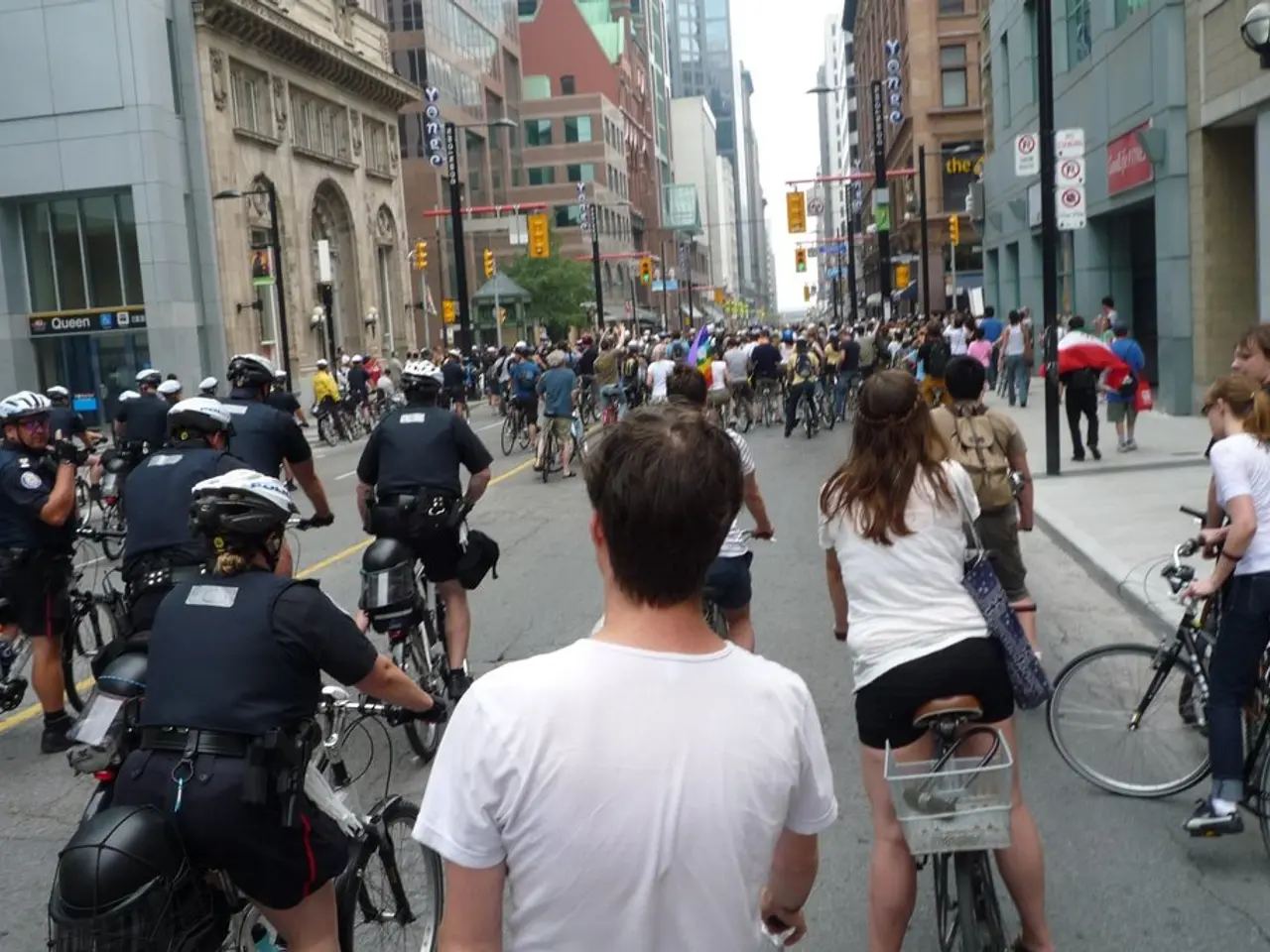Enhancement of Community Mobility through Integration of Bicycle Lanes
Christian Savard, urban planner and advocate for active mobility, has expressed concerns about the proposed tramway project in Quebec, believing it may not significantly improve commuting times to downtown. However, he praises the Plante administration's focus on active mobility, particularly the expansion of Montreal's bike network.
The city's bike network has seen significant growth since 2017, with the length of protected paths increasing sixfold. This expansion is evident in the success of projects like the REseau express vélo (REV) on Saint-Denis Street, which recorded over a million passages in 2024.
The REV, initially an urban highway, has transformed Saint-Denis Street into a greener and more pleasant space for everyone, including pedestrians. The metropolis now boasts 1083 kilometers of bike paths, including 216 kilometers of protected paths, a 34% increase since Valérie Plante took office eight years ago.
However, the expansion has not been without its challenges. Outlying neighborhoods are less well-served by the bike network, and the poor state of the streets, including potholes on bike paths, remains a concern.
Despite these issues, Christian Savard advocates for rebalancing public space to make the city safer. He believes that bike paths in Montreal are overflowing and that the next Montreal administration should continue developing the cycling network.
Jean-François Bruneau, a city planner, supports this view, stating that cities that have overcome road congestion make more room for bikes, pedestrians, and public transportation.
However, Valérie Plante's mobility record isn't perfect. The "structuring network" of transport in Montreal's east end is taking a long time to materialize. Critics, such as Soraya Martinez Ferrada, Ensemble Montreal leader, have committed to re-evaluating all bike paths to improve or dismantle those deemed "dangerous."
Despite these criticisms, the Plante administration's focus on active mobility and the expansion of the cycling network have contributed to a significant increase in bike trips. Montrealers have made 277 million trips by bike, 13 million Bixi trips, and 314.6 million bus or metro trips during Valérie Plante's administration.
In the overall mobility balance, bike trips account for a small but growing percentage, showing a shift towards more sustainable and active modes of transportation. As the city continues to grow and evolve, the focus on active mobility and the expansion of the cycling network will likely remain a key priority.
Read also:
- Duty on cotton imported into India remains unchanged, as U.S. tariffs escalate to their most severe levels yet
- Steak 'n Shake CEO's supposed poor leadership criticism sparks retaliation from Cracker Barrel, accusing him of self-interest
- President von der Leyen's address at the Fourth Renewable Hydrogen Summit, delivered remotely
- Unveiling Innovation in Propulsion: A Deep Dive into the Advantages and Obstacles of Magnetic Engines







